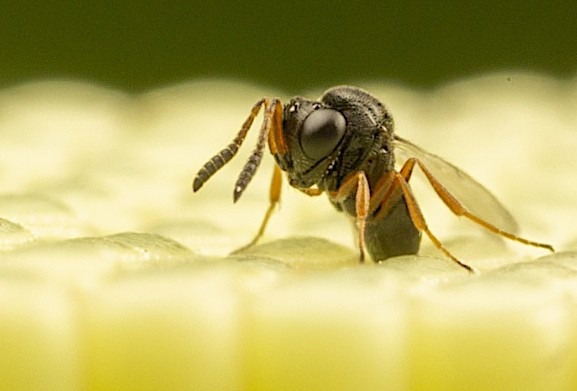The brown marmorated stink bug has been the protagonist over the past few years, but its "cousin," the green stink bug (Nezera viridula), has also continued to affect crops. Over the past few days, Bioplanet, i.e., the useful insect factory, has received an award in the Netherlands. More in detail, Dutch trader Benfried received the HortiContact Innovation Award as, together with Italian producer Bioplanet, it introduced the parasite wasp Trissolcus Basalis to fight Nezera.

"Trissolcus basalis is a native parasitoid that devitalizes green stink bug eggs. It was used with excellent results for the defense of various crops, including tomatoes, bell peppers, eggplants, and cucumbers," explains Jacopo Menghi from Bioplanet.
It is a black Scelionidae hymenopter that is just one millimeter large. T. basalis is capable of parasitizing an entire egg-lay, and parasitized eggs take on a grayish color. The Trissolcus larva grows inside the egg until its adult stage. At around 27°C, the cycle takes around ten days. Females live around two weeks, during which they lay up to 250 eggs. Trissolcus basalis is generally launched starting from May or when green stink bugs first appear on plants.
"Repeated weekly introductions of one individual per square meter constitute the best strategy to ensure the ongoing presence of female parassitoids throughout the infestation calendar."
For more information:![]()
Bioplanet
Via Adriano Olivetti 85
Cesena (FC) - Italy
Email: info@bioplanet.it
www.bioplanet.eu
